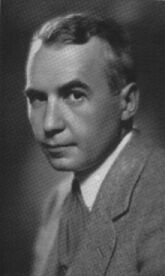Цитата Эрика Ларсона
Это был гражданский корабль, и «Лузитания» могла обогнать любую подводную лодку. Таким образом, эта группа людей была очень уверена, что Кунард и Королевский флот позаботятся о них. Почему они не были под конвоем? Это реальный вопрос.
Связанные цитаты
Я действительно думаю, что здесь сыграла свою роль и гордыня, вера в то, что «Лузитания» слишком велика и слишком быстра, чтобы ее могла поймать какая-либо подводная лодка, и что в любом случае ни один командир подводной лодки не подумает атаковать корабль, потому что сделать это нарушило бы давние правила, регулирующие военно-морскую войну против торгового флота.
Я считаю, что если бы все голосующее население Соединенных Штатов можно было взять небольшими группами в личное турне даже по нейтральным странам Европы, 85 процентов из них проголосовали бы в следующем ноябре за любого кандидата в президенты от любой партии, который мог бы убедительно обещать им большой флот и воинская повинность.
Лузитания, конечно, важна, потому что именно здесь Германия начала свою морскую кампанию, используя это совершенно новое оружие. Мы должны понимать, что подводная лодка, как оружие против гражданского судоходства, была особенно новой вещью — настолько новой, что многие люди в то время отвергли ее потенциальную мощь, ее потенциальную значимость.
Неудивительно, что только одно средневековое государство, Венеция, долгое время обладало чем-то, что можно было бы однозначно идентифицировать как флот в этом смысле. Мы увидим, что ни одно государство на Британских островах не достигло такого уровня сложности до 16 века, и ни одна история Королевского флота в любом точном смысле этого слова не могла законно начаться задолго до этого. Эта книга представляет собой не институциональную историю Королевского флота, а историю военно-морских войн как аспект национальной истории. Все и любые методы ведения боевых действий на море или использования моря в военных целях являются его заботой.
Обгоняйте тех, кто сдается, когда чувствует дискомфорт, обгоняйте тех, кто останавливается из-за отчаяния, обгоняйте тех, кто задерживается из-за предубеждений, обгоняйте тех, кто сдается перед неудачей, и обгоняйте противника, который теряет цель из виду. Потому что, если вы хотите победить, воля никогда не угаснет, гонка никогда не остановится, а вера никогда не ослабеет.
Я много путешествую. Раньше, когда я ехал в любую страну, я мог гарантировать, что первый вопрос установит мое имя, и то, что я написал Корни, а третий вопрос, по крайней мере, не позже четвертого вопроса не будет быть вопросом, даже утверждением, что-то вроде: «Мы понимаем, что в Америке белые люди делают такие-то и такие-то плохие вещи по отношению к черным».
Я пишу стихи с тех пор, как служил на флоте - Розалин. Я обнаружил, что могу сказать в стихах то, чего никогда не мог в прозе. Более глубокие, более личные вещи. Я мог бы написать стихотворение о моей матери, которое я никогда не смог бы рассказать своей матери. Или ощущения от пребывания на подводной лодке, которыми мне было бы слишком неловко поделиться с товарищами-подводниками.
Он [Бог] сделал нас свободными, и Он уважает это. Это две разные сферы причинности. Однако взаимозависимы. Это не две коробки, смотрящие друг на друга без какой-либо прямой связи. Есть очень прямые связи. Вот почему вопрос «как мы свободны, если Бог всемогущ?» это реальный, постоянный вопрос. В конечном счете, Бог всемогущ, и все же мы свободны.
































